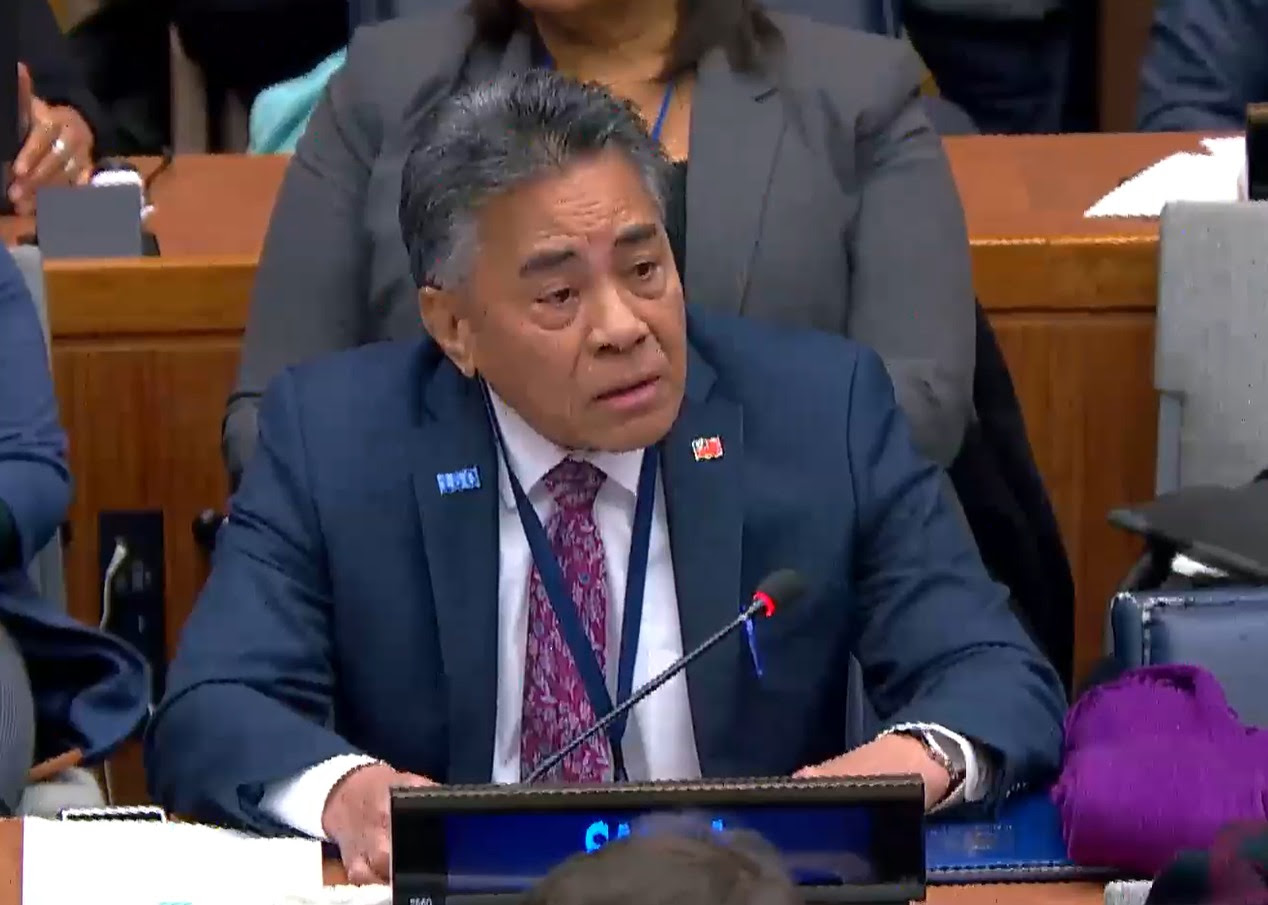This article is a production distributed through Caribbean News Service. It is made freely available to your media and we encourage publishing and redistribution, giving credit to Caribbean News Service (CNS).
by Dizzanne Billy – CNS Contributor
PORT-OF-SPAIN, Trinidad, Oct 30 2015 – “The economic structure of the ideal society also resembles the structure of a healthy human body. Production, distribution and consumption should have an organic, interdependent relationship such as that which exists between the digestive, circulatory and metabolic systems. There should not be destructive competition due to overproduction; nor excessive accumulation or overconsumption due to unfair distribution, which would be contrary to the welfare of all people. There should be adequate production of necessary and useful goods, fair distribution to supply what is sufficient for people’s needs, and reasonable consumption in harmony with the purpose of the whole.” – Sun Myung Moon. Divine Principle, Divine Principle: Ideal economic system
It is common knowledge that the current mainstream structure which guides the way we live, operate, and survive in this world is negatively affecting the Earth. Indeed, it has been preached on countless platforms all over the world that our transport systems, our energy industry, and our burgeoning population are all harmfully disturbing the environment. However, have you ever thought about the effect of what we choose to eat on the environment?
According to the Food and Agriculture Organisation’s (FAO) ‘World agriculture: towards 2030/2050’ report, republished in 2012, which captured media attention, the meat industry has been contributing significantly to the production of greenhouse gases (GHGs). As a matter of fact, it states that the increasing demand for meat and meat products has led to a situation where the production of livestock adds to the emission of more greenhouse gases than the transport sector – this means that the global livestock industry emits more GHGs than every car, plane, train, and ship combined! Can it get more graphic than that you may ask? Well, the production of meat to meet the world’s demands is now comparatively more toxic to you and I than the smoke being released from the endless lines of traffic that we face on a daily basis + the countless planes that travel to a fro through the skies, and that is just two means of transport. The Greenhouse gases produced by the meat industry, such as methane, nitrous oxide, and the infamous carbon dioxide are causing the earth’s surface to be warmed by trapping solar energy, which results in global warming; leading to a host of catastrophic environmental disasters.
This should be sobering news. Your food choice directly determines your carbon footprint and has climate impact.
Why should you care? It is just one more drumstick, right? And bacon tastes like it came from a divine source, doesn’t it?
I have news for you, what you choose to put on your plate, does not only affect your personal health, it inflicts damage on your environment, pumps more GHGs into the atmosphere, and reflects greater affliction for people most affected by climate change. There is a human side to climate change which need to become a priority.
Justin Ginnetti (Senior Advisor at the Internal Displacement Monitoring Sector), at the UNFCCC’s Bonn Climate Talks in June 2015 stated at the ‘Climate Displacement and the Paris Agreement’ side event, that climate change is expected to increase the displacement of people. He explained that people are twice more likely to be displaced now than they were in the 1970s and at present, displacement risk is largely driven by the fact that more and more vulnerable people are living in hazard-prone areas, particularly in cities in developing countries. Climate change will likely increase this risk further due to changes in the frequency and severity of hazards.
The scientific proof that animal agriculture is a substantial source for increasing GHGs in the atmosphere and a major contributor to climate change now describes implications which must be addressed by policymakers. Admittedly, the probability of me marching with a placard in hand clamouring for “NO MORE MEAT,” is low. My simple yet vital suggestion a significant decrease in meat consumption. Consumption equals money, consumption equals disease, and consumption equals waste. Money that can be diverted to poverty alleviation, social development, and climate change mitigation and adaptation; diseases that take more lives now than they did five years ago; and waste that is adding to destruction of our planet.
We often quote Mahatma Ghandi in saying that we need to “be the change that we wish to see in the world.” Do your eating habits fall in the category of things that you are willing to change? Let us turn our attention to multinational food giants that we support. Let us place the magnifying glass on our own shopping cart.
As the global population proliferates out of control and the size of our midsection increases, do we expect that our environment will do anything but suffer? The dominant idea is that the government and civil society has no place telling us what to eat, we must be free to consume whatever we want and in whatever quantities we want. I shall not deny the existence of truth in this ideology, however, freedom is not free. Overconsumption in all its forms is killing us.
Yes, it is our choice, but we need to start making the right choice. For ourselves, our planet, and future generations
This is not a radical message to convert you to veganism, this is a wakeup call. Our bodies need valuable nutrients that are provided by meat but consider this – practical, healthy, and stable diets, which contribute to a healthy and sustainable world. We need to deepen our understanding of the resources that go into the cultivation and generation of our food so as to become more aware of the relationship that exists between food and climate change.
So the next time you sit down to order food or go to the supermarket ask yourself – Do I really need this slab of meat?
Dizzanne Billy, 24, operates in the role of President of the Caribbean Youth Environment Network (CYEN) in Trinidad and Tobago, where she works in the areas of education and public awareness with regard to environment and development issues. She is a climate tracker with Adopt-A-Negotiator and a young advocate for climate change action. This article is an adaptation of ‘Meaty, Meat, Meatiness’ which she wrote for CYEN’s online magazine, ECOLife.




